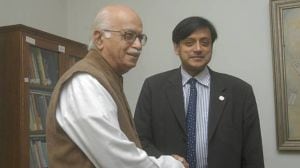The Allahabad High Court has directed that the marriages of 17 interfaith couples in Uttar Pradesh should be registered without insisting on or waiting for approval from the competent district authority with regard to the couples’ conversion of faith.
The court said that while the state’s Unlawful Conversion Act does not prohibit interfaith marriages, individuals marrying outside their religion “can be subjected to harassment”.

Justice Suneet Kumar passed the order on Thursday in a batch of petitions filed by 17 adult couples who said they had entered into interfaith marriages after changing their religion “on free will”. However, “they apprehend threat to their life and liberty at the hands of their parents, relatives and other family members in connivance of the State machinery,” the order said.
Story continues below this ad
The court directed district police authorities to “ensure the safety of the petitioners and provide protection to them, if demanded or needed”.
The UP Prohibition of Unlawful Conversion of Religion Act, 2021 prohibits “unlawful conversion” from one religion to another by misrepresentation, force, undue influence, coercion or allurement, or by any fraudulent means or by marriage. The Act requires a 60-day notice, and requires the Magistrate to conduct a police inquiry to ascertain the real intention behind the conversion.
“The issue, therefore, is whether such a conversion for the purpose of marriage would be ‘unlawful conversion’ against the will of the person is a question of fact, open to enquiry,” the court said.
“…The authority, be it the Marriage Registrar/Officer, or the district authority under the Unlawful Conversion Act, 2021, is neither a court nor authorised by law to enter into the issue pertaining to the validity of marriage or prohibit inter-faith marriage,” the court said.
Story continues below this ad
It said that those opposing the marriages could take recourse to criminal and civil laws, including annulment of marriage, before the competent forum.
It observed that if the conversion undertaken by the 17 couples falls under the ambit of the anti-conversion Act, the petitioners “would be liable to be dealt with under the penal provisions”.
Seeking dismissal of the petitions, counsel for the State-respondents submitted that the conversions had been undertaken for the purpose of marriage, and that approval of the District Magistrate had not been obtained before conversion and/or contracting the marriage.
The counsel for state argued that a marriage cannot be registered without the district authority conducting an inquiry “as to whether, the conversion is voluntary and not induced by coercion, allurement and threat”.
Story continues below this ad
The court observed that freedom of religion and belief is a basic human right across civilised states, and the state cannot inquire into or take notice of a person’s religious or moral belief.
“However, reasonable restrictions can be imposed upon the external manifestation of thought, conscience, religion and belief to protect public safety, public order, health, morality and fundamental right of others,” the court observed.
On the various freedom of religion or anti-conversion laws enacted by states, the court said “the legislations primarily prohibit active proselytising, conversions from the religion of one’s ancestors carried out by forcible or fraudulent means”.
The court mentioned a Supreme Court ruling and said that “these legislations in the opinion of the Court pertain to public order, as forcible conversions could result in disturbing public order”.
Story continues below this ad
In the same order, the Allahabad High Court also said that a Uniform Civil Code for the country “is long due”, and directed the central government to consider the constitution of a Committee or Commission for implementing the mandate of Article 44.
“The UCC is a necessity and mandatorily required today. It cannot be made ‘purely voluntary’ as was observed by Dr B R Ambedkar 75 years back, in view of the apprehension and fear expressed by the members of the minority community,” Justice Suneet Kumar said in his order.









